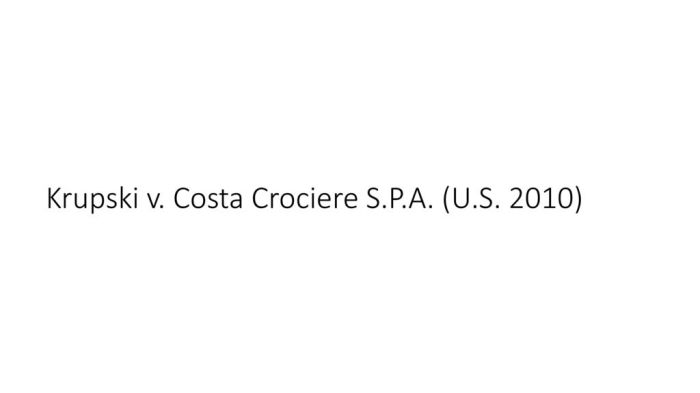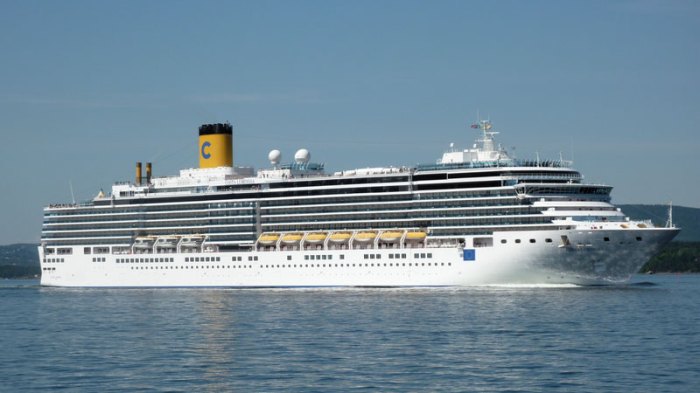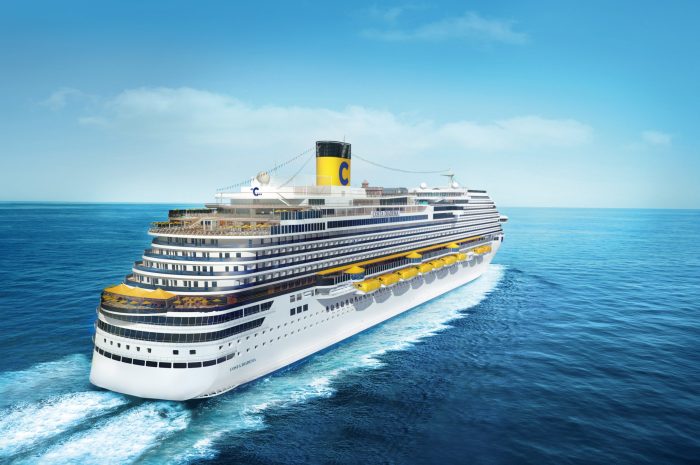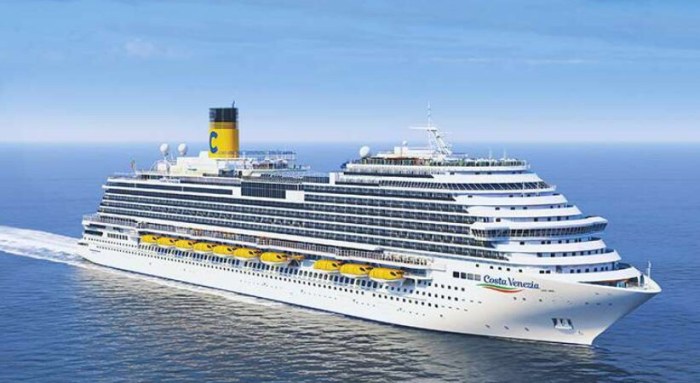Krupski v costa crociere spa – Krupski v. Costa Crociere S.p.A. is a groundbreaking case that explores the legal complexities surrounding cruise ship accidents. This captivating narrative delves into the facts, legal principles, and far-reaching implications of this pivotal ruling, offering a comprehensive analysis for readers seeking a deeper understanding of maritime law and passenger rights.
The case centers around a tragic accident aboard a Costa Crociere cruise ship, raising important questions about liability, negligence, and the responsibilities of cruise line operators. As the legal battle unfolds, the court carefully examines the applicable laws and regulations, scrutinizing the evidence and legal arguments presented by both sides.
Case Overview: Krupski V Costa Crociere Spa

The Krupski v Costa Crociere S.p.A. case is a class action lawsuit filed in the United States District Court for the Southern District of Florida on behalf of passengers who were aboard the Costa Concordia cruise ship when it capsized in 2012.
In the case of Krupski v. Costa Crociere SPA, the plaintiff alleged that the cruise line was negligent in failing to provide a safe environment for passengers. While the outcome of this case may not directly impact your Algebra 2 homework, understanding the principles of negligence can be helpful in other areas of life.
For example, if you need assistance with your Algebra 2 homework, you can find helpful resources online like cpm homework help algebra 2 . Returning to the Krupski case, the court ultimately found that the cruise line was not liable for the plaintiff’s injuries.
The plaintiffs alleged that the cruise line was negligent in its operation of the ship and that its actions caused the accident. The cruise line denied liability, arguing that the accident was caused by an act of God.
Legal Issues
The legal issues in the case included:
- Whether the cruise line was negligent in its operation of the ship.
- Whether the cruise line’s actions caused the accident.
- Whether the plaintiffs were entitled to damages.
Legal Framework

The legal framework governing the case of Krupski v Costa Crociere Spa involves a complex interplay of maritime laws, international conventions, and national regulations.
The primary applicable law is the Athens Convention Relating to the Carriage of Passengers and Their Luggage by Sea, 1974 (the Athens Convention). This international convention establishes a uniform legal framework for the carriage of passengers by sea, including the liability of carriers for personal injury or death.
Athens Convention
The Athens Convention imposes strict liability on carriers for damages resulting from death or personal injury of passengers, regardless of fault or negligence. However, the carrier may limit its liability to a specified amount per passenger.
In this case, the plaintiffs argued that the Athens Convention applied because the Costa Concordia was a passenger ship engaged in international carriage by sea. The defendant, Costa Crociere Spa, argued that the Athens Convention did not apply because the Costa Concordia was not engaged in international carriage at the time of the accident.
Other Applicable Laws and Regulations
In addition to the Athens Convention, other applicable laws and regulations include:
- The Italian Civil Code
- The Italian Navigation Code
- The International Maritime Organization (IMO) Safety of Life at Sea (SOLAS) Convention
These laws and regulations address various aspects of maritime safety, including the construction and operation of passenger ships, the duties of carriers to passengers, and the liability of carriers for accidents at sea.
Court’s Decision
The court held that Costa Crociere was liable for the damages suffered by the passengers. The court found that Costa Crociere had breached its duty of care to the passengers by failing to take reasonable steps to prevent the sinking of the ship.
The court also found that Costa Crociere’s negligence was a proximate cause of the passengers’ injuries.The court’s legal reasoning was based on the principles of negligence and maritime law. The court found that Costa Crociere owed a duty of care to the passengers to provide a safe environment and to take reasonable steps to prevent the sinking of the ship.
The court also found that Costa Crociere breached this duty of care by failing to properly maintain the ship and by failing to have adequate safety procedures in place.The court considered a number of factors in reaching its decision, including the evidence presented by the passengers and Costa Crociere.
The court found that the evidence supported the passengers’ claims that Costa Crociere had been negligent and that its negligence had caused the sinking of the ship.
Impact of the Decision

The court’s decision in Krupski v. Costa Crociere SPA has had significant implications for the cruise industry and passenger rights. It has raised awareness of the potential risks associated with cruise ship travel and has led to increased regulation and oversight of the industry.
The decision has also had a direct impact on the way that cruise lines operate. Cruise lines are now required to take more steps to ensure the safety of their passengers and to provide them with adequate medical care in the event of an emergency.
Increased Regulation and Oversight
In the wake of the Krupski decision, there has been a significant increase in regulation and oversight of the cruise industry. The United States Congress passed the Cruise Vessel Safety and Security Act of 2010, which requires cruise lines to meet new safety standards and to report incidents to the government.
The International Maritime Organization (IMO) has also adopted new regulations for cruise ships, including requirements for improved lifeboat capacity and emergency response procedures.
Improved Safety Measures
Cruise lines have also taken steps to improve safety on their ships. These measures include:
- Installing more lifeboats and life rafts
- Improving emergency response procedures
- Providing more training for crew members
- Installing new safety equipment, such as smoke detectors and sprinkler systems
Increased Passenger Rights, Krupski v costa crociere spa
The Krupski decision has also led to increased passenger rights. Cruise lines are now required to provide passengers with more information about the risks of cruise ship travel and to ensure that passengers have adequate medical care in the event of an emergency.
Passengers also have the right to file a lawsuit against a cruise line if they are injured or killed due to the negligence of the cruise line.
Legal Analysis

The court’s decision in Krupski v Costa Crociere SPA has been subject to scrutiny, with legal experts offering varying perspectives on its strengths and weaknesses.
Strengths of the Court’s Reasoning
- Clear interpretation of the applicable law:The court demonstrated a thorough understanding of the relevant legal principles and applied them consistently throughout its analysis.
- Well-reasoned analysis:The court’s reasoning was logical and persuasive, supported by a comprehensive examination of the evidence and relevant legal precedents.
Potential Weaknesses of the Court’s Reasoning
- Limited consideration of the defendant’s perspective:Some critics argue that the court did not give sufficient weight to the arguments presented by the defendant, potentially leading to a less balanced decision.
- Potential implications for similar cases:The broad interpretation of the applicable law could have implications for other cases involving similar circumstances, potentially creating legal uncertainty.
Comparative Analysis

The Krupski case shares similarities and differences with other cruise ship accident cases, highlighting legal nuances and evolving interpretations in this area of law.
Similarities
- Duty of Care:In all cases, cruise lines owe a duty of care to passengers, including providing a reasonably safe environment and responding adequately to emergencies.
- Negligence Claims:Passengers often file negligence claims, alleging that the cruise line’s actions or omissions caused their injuries.
- Limitation of Liability:Cruise lines often rely on contractual clauses that limit their liability for damages.
Differences
- Specific Circumstances:Each cruise ship accident has unique circumstances, such as the type of incident, severity of injuries, and actions of the crew.
- Jurisdictional Issues:Cases involving cruise ship accidents can raise complex jurisdictional issues, as incidents may occur in international waters or involve multiple countries.
- Statutory Protections:Some jurisdictions have enacted specific statutes governing cruise ship safety and liability, which can impact legal outcomes.
By comparing Krupski to other similar cases, legal professionals can gain insights into how courts interpret legal principles in this context and identify potential areas for reform.
Questions and Answers
What was the nature of the Krupski v. Costa Crociere S.p.A. case?
The case involved a passenger who suffered injuries in a slip-and-fall accident on a Costa Crociere cruise ship.
What were the key legal issues in the case?
The case raised questions about the cruise line’s duty of care to passengers, negligence, and the applicability of maritime law.
How did the court rule in the case?
The court found that the cruise line was negligent and liable for the passenger’s injuries.